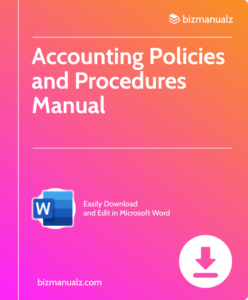How To Become A CPA In California?

Are you dreaming of becoming a Certified Public Accountant (CPA) in California? Are you feeling overwhelmed by the complex requirements and process? Look no further, as this article will guide you through the steps and provide valuable insights to help you achieve your goal of becoming a CPA in California.
What Is a CPA?
A Certified Public Accountant (CPA) is a professional designation given to individuals who have fulfilled certain requirements in education, experience, and passing the CPA exam. CPAs possess advanced skills in accounting, auditing, taxation, and financial management.
They offer a diverse range of services, including financial planning, forensic accounting, and consulting. CPAs have the opportunity to work in various industries, including public accounting firms, corporations, government agencies, and non-profit organizations. They play a vital role in ensuring the accuracy, compliance, and transparency of financial matters for both businesses and individuals.
Why Become a CPA in California?
Becoming a CPA in California offers a multitude of benefits and opportunities for individuals in the accounting profession.
- Career Advancement: CPAs have a higher earning potential and increased job prospects compared to non-certified accountants.
- Industry Demand: With a thriving business landscape, there is a high demand for qualified CPAs in various industries in California.
- Professional Prestige: Being a CPA in California signifies professionalism, expertise, and credibility in the field of accounting.
- Legal Privileges: CPAs in California have the authority to represent clients before the Internal Revenue Service (IRS) and provide services such as tax preparation and financial consulting.
- Networking and Growth: Being a part of the CPA community in California allows for networking opportunities, knowledge sharing, and professional development.
What Are the Requirements to Become a CPA in California?
Becoming a certified public accountant (CPA) in California is a rigorous process that requires meeting specific requirements set by the state. These requirements encompass education, work experience, and passing various exams. In this section, we will break down the different requirements that must be met in order to become a CPA in California. From educational qualifications to the ethics exam, we will explore the key components needed to achieve this professional designation.
1. Education Requirements
The necessary steps to become a CPA in California include meeting the following education requirements:
- Obtain a bachelor’s degree: Earn a bachelor’s degree from an accredited college or university with a minimum of 150 semester units, including specific accounting and business courses.
- Complete accounting coursework: Take specific accounting courses, such as financial accounting, auditing, taxation, and managerial accounting.
- Meet the ethics requirement: Complete a course in ethics, such as the Professional Ethics for CPAs course offered by the California Board of Accountancy.
- Verify educational qualifications: Submit official transcripts to the California Board of Accountancy to confirm your educational qualifications.
2. Work Experience Requirements
To fulfill the necessary work experience requirements to become a CPA in California, follow these steps:
- Earn a bachelor’s degree in accounting or a related field.
- Complete at least two years of relevant work experience under the guidance of a licensed CPA.
- Ensure that the work experience includes tasks related to accounting, auditing, taxation, or financial reporting.
- Secure a position in a public accounting firm, government agency, or private industry that provides the required experience.
- Maintain detailed records of your work experience, including start and end dates, job responsibilities, and the name and contact information of your supervisor.
- Submit the necessary documentation of your work experience along with your application for a CPA license.
3. Uniform CPA Exam Requirements
The Uniform CPA Exam is an essential requirement for becoming a CPA in California. To fulfill the exam requirements, follow these steps:
- Check Eligibility: Make sure you meet the necessary education requirements and have completed at least 120 semester units of college coursework.
- Apply with the CBA: Submit an application to the California Board of Accountancy (CBA) and pay the required fees.
- Receive Authorization: Once your application is approved, you will receive a Notice to Schedule (NTS) from the National Association of State Boards of Accountancy (NASBA).
- Schedule Your Exam: Use the NTS to schedule your exam appointments with a Prometric testing center.
- Prepare and Study: Utilize review courses, study materials, and practice exams to prepare for each section of the exam.
- Take the Exam: Arrive at the testing center on your scheduled exam dates and complete each section of the exam.
- Receive Scores: After completing the exam, you will receive your scores online from NASBA.
- Passing the Exam: To pass the Uniform CPA Exam, you must achieve a minimum score of 75 on each section within an 18-month rolling period.
Jane, a diligent student, followed these steps to meet the requirements for the Uniform CPA Exam. After months of hard work and dedication, she passed all the sections and proudly earned her CPA license in California. Her determination and effort have opened doors to exciting career opportunities in the accounting field.
4. Ethics Exam Requirement
To fulfill the 4. Ethics Exam Requirement for becoming a CPA in California, follow these steps:
- Research: Understand the specific ethics exam requirements set by the California Board of Accountancy.
- Select an approved course: Choose an ethics exam course approved by the Board.
- Enroll in the course: Enroll in the chosen ethics exam course and complete the required coursework.
- Study and prepare: Dedicate time to study and familiarize yourself with ethical principles and standards.
- Take the exam: Schedule and take the ethics exam once you feel prepared.
These steps will ensure you meet the 4. Ethics Exam Requirement and continue on your path to becoming a CPA in California.
How to Prepare for the CPA Exam?
The CPA exam is a rigorous and challenging test that requires a significant amount of preparation. In order to successfully pass the exam and become a certified public accountant in California, it is important to have a strategic and structured approach to studying.
This section will discuss the key steps to preparing for the CPA exam, including enrolling in a CPA review course, creating a personalized study plan, and utilizing practice exams. With these tools and techniques, you can feel confident and well-prepared to tackle the CPA exam.
1. Enroll in a CPA Review Course
To enroll in a CPA review course, follow these steps:
- Research available CPA review courses, such as Becker or Wiley.
- Compare the features of each course, including study materials, practice exams, and support resources.
- Consider the format of the course, whether it is online, in-person, or a combination of both.
- Check the duration of the course and the availability of flexible study options.
- Read reviews and testimonials from past students to determine the effectiveness of the course.
- Choose a course that best fits your learning style and budget.
- Visit the website of the course provider and sign up for your selected course.
- Complete the registration process by providing necessary information and making the payment.
- Access the course materials and begin your preparation for the CPA exam.
2. Create a Study Plan
Creating a study plan is crucial for success when preparing for the CPA exam in California. Here are the steps to follow:
- Assess your strengths and weaknesses by taking a practice exam or diagnostic test.
- Create a Study Plan by setting specific and achievable goals, such as completing a certain number of study hours each day or week.
- Break down the CPA exam content into manageable sections and assign study hours accordingly.
- Allocate time for both reviewing the material and practicing with sample questions and simulations.
- Create a study schedule that fits your daily routine and allows for regular breaks to avoid burnout.
- Gather study materials, such as textbooks, online resources, and CPA review courses.
- Stay organized by using a planner or study app to track your progress and deadlines.
- Seek support from study groups, online forums, or mentors who can provide guidance and motivation.
- Regularly evaluate your study plan and adjust as needed based on your progress and performance.
3. Utilize Practice Exams
- Practice exams are a crucial tool for preparing for the CPA exam in California.
- Enroll in a CPA review course that offers access to a variety of practice exams.
- Create a study plan that includes regular sessions of utilizing practice exams.
- Utilize practice exams to become familiar with the format, content, and time constraints of the actual exam.
- Review and analyze your performance on practice exams to identify areas for improvement.
- Use practice exams to simulate real exam conditions and boost your confidence.
- Take advantage of the feedback and explanations provided with practice exams to enhance your understanding of the material.
- Repeat practice exams multiple times to reinforce your knowledge and improve your exam-taking skills.
How to Apply for the CPA License in California?
Becoming a Certified Public Accountant (CPA) in California can open up many career opportunities and increase your earning potential. However, the process of obtaining a CPA license can seem daunting. In this section, we will break down the steps to applying for a CPA license in California. From submitting the necessary documents to receiving your license, we will guide you through the process and provide helpful tips along the way. Let’s get started on your journey to becoming a CPA in California.
1. Submit Application and Required Documents
To apply for a CPA license in California, please follow these steps:
- Collect all necessary documents, including transcripts, exam scores, and proof of work experience.
- Fill out the application form accurately and thoroughly, providing all required information.
- Include any additional required forms or documentation, such as letters of reference or character evaluations.
- Submit the application fee online or by mail, making sure all fees are included and the payment is submitted correctly.
- Send the application and all required documents either online or by mail to the California Board of Accountancy.
- Wait for the board to review and process your application, which may take several weeks.
- Once approved, your CPA license will be mailed to you.
2. Pay Application and License Fees
Paying application and license fees is an essential step in becoming a CPA in California. Here is a list of steps to guide you through this process:
- Complete and submit the CPA license application form.
- Calculate and submit the required fees for both the application and license.
- Ensure all necessary supporting documents are included with the application.
- Submit the application and fees either online or by mail.
- Wait for the application to be processed and approved.
- Once approved, your CPA license will be issued to you.
By following these steps and paying the necessary application and license fees, you can move forward in becoming a licensed CPA in California.
3. Wait for Approval and Receive License
After successfully completing the application process to become a CPA in California, the next step is to wait for approval and receive your license. This process includes the following steps:
- Submit the completed application and all required documents.
- Pay the necessary application and license fees.
- Wait for the approval process to be completed by the California Board of Accountancy.
- Once your application is approved, you will receive your CPA license.
It is important to keep in mind that the time it takes to receive your license may vary, so it is recommended to follow up with the Board if you do not receive it within a reasonable timeframe.
What Are the Continuing Education Requirements for CPAs in California?
As a Certified Public Accountant (CPA) in California, it is important to stay up-to-date with the ever-evolving field of accounting. This section will discuss the continuing education requirements for CPAs in California, which include specific CPE requirements, reporting periods, and exemptions and exceptions. By understanding these requirements, CPAs can ensure they maintain their license and provide high-quality services to their clients. Let’s dive into the details of what it takes to maintain your CPA license in California.
error
2. Reporting Periods
The reporting periods for CPAs in California refer to the timeframes within which they must complete their continuing education (CPE) requirements. Here are some key points to know about reporting periods for CPAs in California:
- Reporting Periods: CPAs in California are required to complete their CPE requirements within a two-year reporting period.
- Biennial Basis: The reporting period for CPAs runs on a biennial basis, covering a two-year period.
- Renewal Cycle: CPAs must renew their licenses every two years, aligning with the end of the reporting period.
- Compliance Deadline: CPAs must fulfill their CPE requirements and report their compliance by the last day of their reporting period.
Suggestions: It is crucial for CPAs in California to keep track of their reporting periods and plan their CPE activities accordingly. They can utilize resources such as professional development programs, conferences, and online courses to stay updated with the latest industry knowledge and meet their CPE requirements on time.
3. Exemptions and Exceptions
To understand the exemptions and exceptions for becoming a CPA in California, follow these steps:
- Review the specific requirements outlined by the California Board of Accountancy to determine if you qualify for any exemptions or exceptions.
- Check if you meet any educational or work experience waivers that may allow you to bypass certain requirements.
- Explore alternative pathways, such as the Mobility Agreement, which grants CPAs from other states certain exemptions when applying for a California license.
- Consult with the California Board of Accountancy directly or seek guidance from professionals in the field for clarification and guidance on exemptions and exceptions.
What Are the Career Opportunities for CPAs in California?
CPAs in California have a vast range of career opportunities in various industries and sectors. They can find employment in public accounting firms, where they offer auditing, tax, and consulting services to clients. CPAs can also work in corporate finance departments, managing financial reporting, budgeting, and strategic planning.
Additionally, they can pursue careers in government agencies, conducting financial analysis and ensuring compliance with regulations. Some CPAs may opt to work as internal auditors, assessing and enhancing organizations’ internal controls and risk management processes. With their expertise and professional credentials, CPAs in California have numerous avenues to explore and excel in their careers.
Become A CPA In California
There are many advantages and opportunities for those in the accounting field who become certified public accountants (CPAs) in California. In California, there are many different industries and sectors in which CPAs can pursue careers. They can work for public accounting firms, providing clients with auditing, tax, and consulting services. In corporate finance departments, CPAs can oversee budgeting, strategic planning, and financial reporting.
Frequently Asked Questions
How do I become a CPA in California?
To become a CPA in California, you must meet the educational and experience requirements set by the California Board of Accountancy, pass the Uniform CPA Exam, and complete an application process.
What are the educational requirements to become a CPA in California?
In California, you must have a bachelor’s degree or higher from a regionally accredited college or university, with at least 24 semester units in accounting and 24 semester units in business-related subjects, to qualify for the CPA exam.
Do I need work experience to become a CPA in California?
Yes, in addition to meeting the educational requirements, you must also have at least one year of full-time or equivalent part-time work experience in public accounting, government, industry, or academia to become a CPA in California.
How do I apply for the CPA exam in California?
After meeting the educational and experience requirements, you can apply to take the Uniform CPA Exam through the California Board of Accountancy website. You will need to provide transcripts, proof of work experience, and pay an application fee.
What is the passing score for the CPA exam in California?
The passing score for each section of the Uniform CPA Exam in California is 75. You must achieve a score of 75 or higher on each section within an 18-month period to pass the exam.
Are there any additional requirements to maintain a CPA license in California?
In order to maintain your CPA license in California, you must complete continuing education courses and renew your license every two years. You must also adhere to ethical and professional standards set by the California Board of Accountancy.
















Leave a Reply